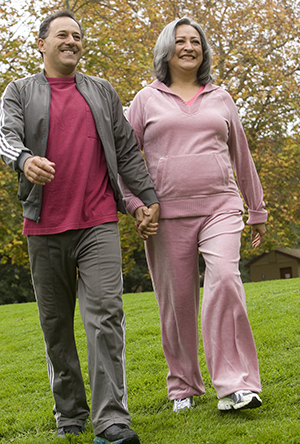You can often go home the same day as your surgery after laparoscopic surgery. In some cases, you may need to stay overnight. After open surgery, you'll usually need to stay in the hospital for 2 to 5 days. Once you’re at home, follow all your healthcare provider’s instructions.
In the hospital
Bandages will cover your incisions. And you may have special boots on your legs to help with circulation. Or you may get shots (injections) to prevent blood clots. To aid recovery, you’ll be asked to get up and move as soon as possible. You may also be asked to use a device that helps promote deep breathing to keep your lungs clear.
At home
You can get back to your normal routine as soon as you feel able. To speed healing:
-
Take any prescribed pain medicines as directed.
-
Follow your healthcare provider’s instructions about bathing and caring for your incisions.
-
Walk and move around as often as possible. But follow your provider's instructions on when to start aerobic exercise and how much weight you can lift.
-
Ask your provider about driving and going back to work. This is often about 5 to 10 days after surgery.
Eating normally again
Removing the gallbladder doesn’t mean you have to be on a special diet. But you may want to start with light meals. It can also take a few weeks for your digestion to adjust. You may have indigestion, loose stools, or diarrhea. This is common. It should go away in time.
Following up
Keep follow-up appointments during your recovery. These let your healthcare provider check your progress and answer any questions. Tell your provider if you have any new symptoms. Or if you have diarrhea that doesn’t go away.
When to call your healthcare provider
Call your provider if you have any of the following:
-
Fever of 100.4º F (38º C) or higher, or as advised by your provider
-
Chills
-
More pain, redness, or fluid leaking at an incision site
-
Upset stomach (nausea) or vomiting that lasts more than 12 hours
-
Yellow skin or eyes
-
Diarrhea for a long time
-
Belly pain
-
Leg swelling
-
Trouble peeing
-
Mild or temporary bleeding
-
Not able to have a bowel movement for 3 days
Call 911
Call
-
Sudden shortness of breath or trouble breathing
-
A lot of bleeding or bleeding that lasts a long time
-
Fainting
Featured in


